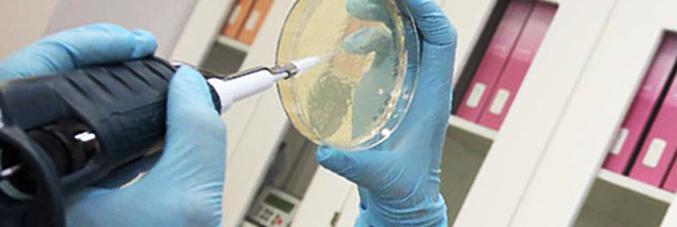
Studying virus behavior: research project led by Unipd funded
18.12.2024
Umberto Rosani, a researcher from the Department of Biology at the University of Padua, along with an international team, has won a prestigious grant of over 3 million euros, funded by the European Innovation Council (Pathfinder Open - EIC).
This funding will enable the research team to undertake an innovative and visionary project titled “Hacking the Ribosome to Map Virus-Host Associations” (VirHoX), aimed at revolutionizing our understanding of virus-host dynamics and advancing future environmental, biotechnological, and medical applications.
The Pathfinder Open, part of the Horizon Europe program, is an extremely competitive funding scheme supporting pioneering research, providing scientists with the necessary resources to explore innovations that promise to shape future technologies.
The VirHoX project aims to fill a gap in the understanding of viruses: associating viruses with their hosts in complex ecosystems. While sequencing and metagenomics have greatly expanded our knowledge of viral diversity, the current challenge is to accurately map virus-host relationships across different domains of life. To address this issue, VirHoX proposes to “hack” the ribosome to establish an innovative method for host assignment that could be applied to various biological systems, from human microbiomes to environmental samples.
“This project has great potential, both for basic science and practical applications,” says Umberto Rosani. “By developing this technology, we hope to open new insights into viral diversity and transmission, with significant impact on diagnostics, disease prevention, and ecosystem management.”
“Synergy” and “opportunity for emerging scientists” are the two key words of the VirHoX project, which will run from 2025 to 2029, and involves the collaboration of academic and industrial experts in Italy, France, Austria, Germany, and Norway. Together, we will apply cutting-edge approaches in protein engineering, viral gene and genome studies, molecular biology, bioinformatics, and regulatory aspects to create protocols capable of unraveling the complexities of virus-host interactions, looking at possible applications of this technology. The project also represents a unique opportunity for emerging scientists as PhD students and young researchers will play an essential role.
The achievement of Umberto Rosani with this funding underscores the University of Padua's commitment to supporting transformative research that fosters scientific discovery and technological advancement. It represents a significant contribution to the European scientific innovation landscape, promising impactful advancements in the fields of biotechnology, public health, and ecological sciences.



